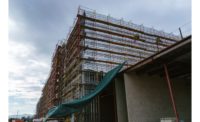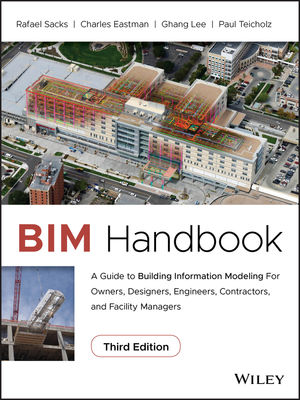Metal Cladding Brings Value to New Emergency Services Center
Photo courtesy of hortonphotoinc.com
While thoughts of 2005’s Hurricane Katrina might bring images of the resulting destruction in New Orleans to mind, it’s important to remember that other areas of the Gulf Coast were severely impacted as well. Damage in Mississippi, for example, has been estimated to have totaled $125 billion. The Mississippi Center for Emergency Services (MCES) on the campus of the University of Mississippi Medical Center (UMMC) in Jackson grew out of lessons learned from that storm. A new headquarters brings together multiple functions in a building that uses metal wall panels in multiple profiles to create visual interest in a budget-friendly design.
While the MCES has been operational since 2014, its varied services were housed in several locations across the university’s campus. Now, the statewide emergency medical communications network, Mississippi MED-COM, is co-located with both MCES administrators and three helicopters used for emergency medical flights. Ample training space also is included in the 27,551-sq.-ft. facility, along with living quarters for the paramedics who rotate through the building during their on-duty shifts.
Hewing tightly to the close-to-$20 million budget was critical for their client, so designers with Gensler’s Houston office decided to get creative with metal for the building’s exterior. Often chosen simply for its utilitarian advantages, metal can be overlooked as an aesthetic option. But the design team recognized the need for visual appeal, given the MCES’s location on the roadway leading to the medical center.
“How can we make this a beautiful metal building and tie it into the university?” says Todd Campbell, AIA, one of the architects on the Gensler team, describing the challenge the project posed for him and his colleagues. The solution was a base level of tan brick that ties the MCES to other campus structures, topped by a much more significant use of metal wall and roof panels that emphasize the facility’s unique massing.
That massing calls out the building’s two main functional areas – the administrative and control center spaces at the front and the helicopter hanger, training area and living quarters at the back – under two swooping rooflines whose profiles were drawn from an unusual source. “The shape of the building came from the stance of a bird just before it takes off,” Campbell says, specifically the northern mockingbird, which happens to be Mississippi’s state bird. He adds that the emergency personnel manning the MCES helicopters refer to their aircraft as “birds,” which led to the designers’ avian inspiration.
While the initial performance-based specification called for a different metal manufacturer, installation pros with Jackson-based E. Cornell Malone Corp. turned to Petersen, instead, based on their familiarity with both the company and its products.
“E.C. Malone chose to submit Petersen because we have worked with them in the past,” says the company’s general manager, Dan Edwards. “They had the matching profiles and colors that the architect wanted.”
In total, more than 81,000 sq. ft. of Petersen’s PAC-CLAD panels were ordered for the project. These included:
- Tite-Loc Plus 18-in. wide .040 aluminum roof panels in Zinc color
- HWP panels in a Zinc finish as the primary exterior material for the front MED-COM building
- Highline B2 panels in Charcoal as color accents for the MED-COM building and on the north and south elevations of the helicopter bay
- HWP panels in Award Blue at entrances and for the helicopter bay doors
- Flush panels in Zinc for soffits
- Perforated HWP panels in Zinc, Charcoal and Award blue, arranged in a staggered pattern to screen the ground-mounted mechanical equipment
- M-36 panels in custom color Ascot White for the hanger interior
Despite having to manage multiple profiles, Edwards says the project was right in his team’s wheelhouse. “We like to think our ability to handle the more complex projects is our best sales tool,” he says. “The majority of the exterior had 3-in. sub-framing for panel attachment, but a lot of the color accent panels we framed 1 in. from the building substrate so they were recessed.”
Edwards adds that the company received help from Petersen in the planning stages to iron out the various gauges and colors in the complicated panel order, but he says that kind of assistance is par for the course from the supplier. “Petersen is a good partner of E.C. Malone – we work with them regularly – we’ve probably worked with them for the past 15 years or more,” he says. “We are looking forward to our next opportunity to team up with them on another challenge.”
The hard work has paid off with a building that has met all performance, budget and design goals. “The end user was really pleased with the finished product,” Edwards says. “We are confident that the quality of products provided will provide the owner with a great building for many years to come.”
Looking for a reprint of this article?
From high-res PDFs to custom plaques, order your copy today!





